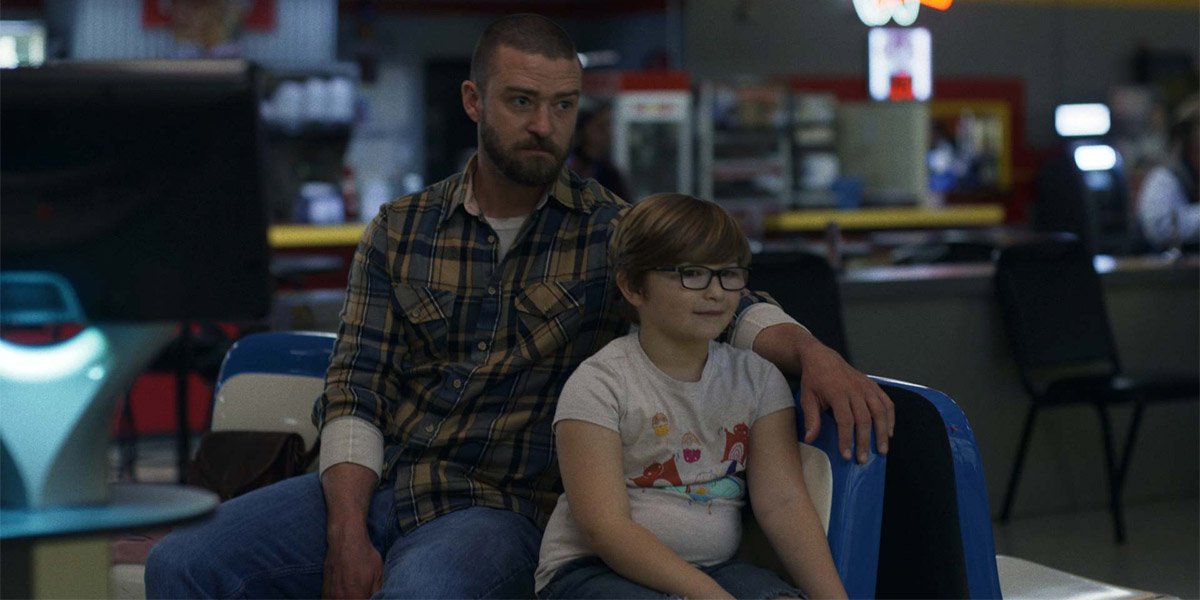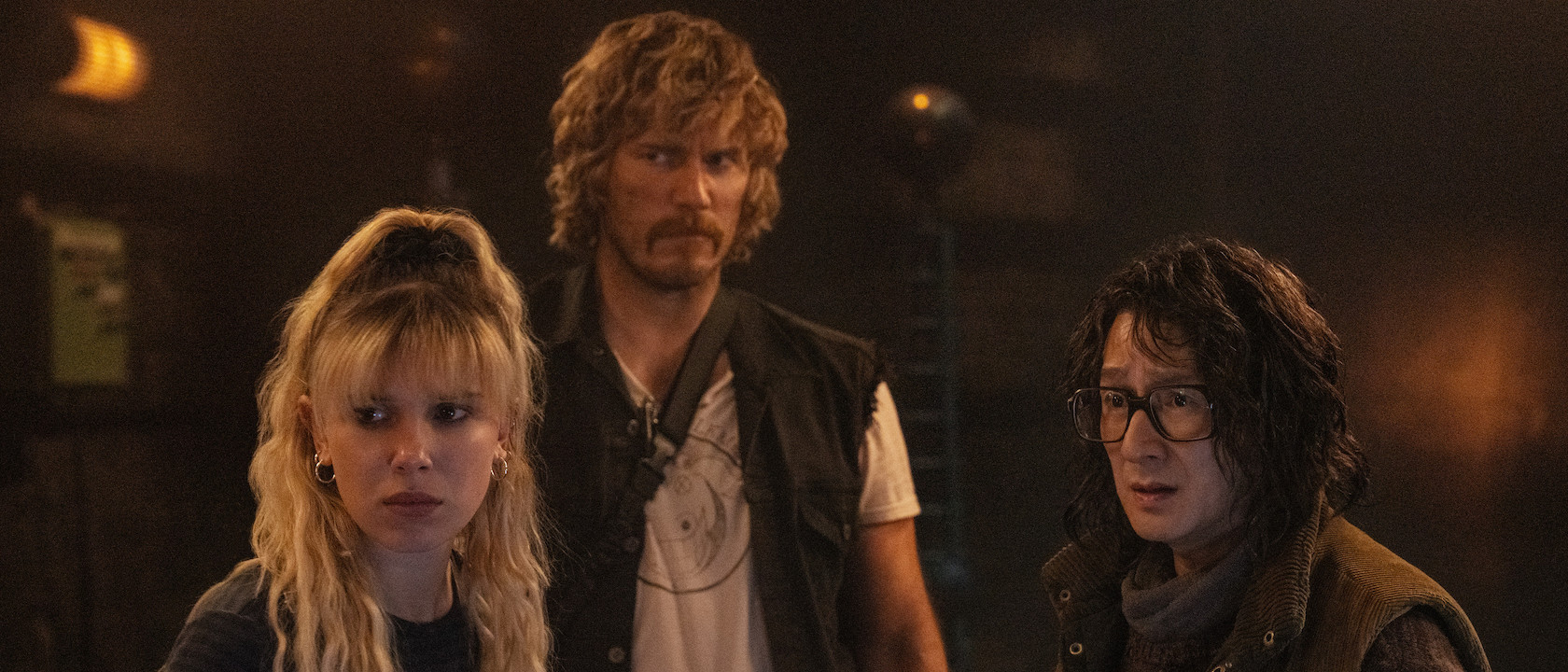Things never looked better for Justin Timberlake’s career as an actor than they did at the end of 2010. His performance as Sean Parker in David Fincher’s The Social Network was deemed revelatory, with many buzzing about his Oscar potential, and he had wrapped production on three different features – two of which (Will Gluck’s Friends With Benefits and Andrew Niccol’s In Time) had him playing the male lead. When the ball in Times Square dropped and ushered in 2011, Timberlake seemed poised to become an awesome double threat ready to match his stature in the movie world with his stature in the music world.
But it never happened. His filmography in the decade since isn’t without highlights, the brightest being Joel and Ethan Coen’s Inside Llewyn Davis, but mostly his movie career has been about teaming up with big name talent and producing forgettable entertainment (collaborating with Clint Eastwood on Trouble With The Curve, Ben Affleck on Runner Runner, and Woody Allen on Wonder Wheel, etc.). Given his talent, one expects that eventually Justin Timberlake will eventually find another project that highlights his potential as greatly as The Social Network did – but Fisher Stevens’ Palmer isn’t it.
This time around he’s not working with his usual safety net, and it’s a story with honest emotion. The problem is that it doesn’t have much else going for it. It’s cute to see the bond he shares with a young boy in the story, and its heart is in the right place, but it doesn’t offer anything new to say or feature a unique perspective that gives it any recognizable raison d'etre. While not exactly bad, it’s strikingly mediocre – the kind of film that makes you shrug and give a “That was ok I guess” as the end credits roll.
The titular Palmer in the movie is Justin Timberlake’s Eddie Palmer – a man who begins the film resettling into life following a multi-year stint in prison. Returning to his hometown in Louisiana and moving in with his grandmother, Vivian (June Squibb), he initially struggles to acclimate due to his criminal record, but eventually gets a job as a custodian at the local elementary school. It’s through both of these parts of his life that he meets Sam (Ryder Allen) –the princess-loving son of a drug addict named Shelly (Juno Temple) who lives in a trailer on Vivian’s property.
With Shelly known to disappear for weeks at a time, Sam regularly stays with Vivian, and while that’s generally not an issue, the circumstances change when Vivian passes away. At first Palmer believes himself in no position to take care of a kid, but it’s a responsibility that he accepts when he understands that Sam would go into the foster system. The pseudo-father-and-son learn to live together, with extra support coming from Sam’s teacher, Maggie (Alisha Wainwright), but the relationship isn’t without its struggles due to Palmer’s non-legally binding guardianship and social pressures on Sam to be less feminine.
Justin Timberlake just doesn’t have a lot to work with in Palmer.
It feels like Palmer should be a kind of sink or swim moment for Justin Timberlake, being both the protagonist and the biggest name involved in the production, but it never generates that kind of energy because there isn’t much to the character he’s playing. Following his years in prison, Palmer has taken on a mostly stoic and humble persona, and while that certainly makes for a good attitude in a rehabilitated criminal, it also doesn’t lend to a particularly dynamic performance.
The most expressive he gets is when he goes into rage mode, typically when someone hurts someone he cares about, and in those moments there is a great deal of fire in Timberlake’s turn. Beyond those brief moments, however, you don’t even get the full sense that it’s boiling below the surface, and while the movie has the opportunity to explore his anger, it never actually acts on it – instead throwing in drama like the news that Vivian’s will states that her house will be sold to the church (something that is never addressed as a conflict after it’s introduced). You might think that the bland, single-name title is an indication that Palmer is a character study, but it’s a film that is far more invested in its weak narrative.
Palmer has positives messages about responsibility and self-expression, but it’s more about sentiment than impact.
Fisher Stevens’ feature doesn’t too deserve a harsh response, as it is a drama that succeeds in both having a sweet, progressive outlook that never feels overly saccharine or schmaltzy. In an actions speak louder than words or emotions kind of way, Palmer clearly does care for Sam and his well-being, and Sam is a character that is hard not to love in his confidence about who he is (an early swipe by Palmer saying that “boys don’t play with dolls” is met with the quick retort, “I’m a boy and I do.”). As much appreciation as one can have for that outlook, however, the movie doesn’t really drive home those kinds of moments in a meaningful way.
That thread about self-expression is definitely the strongest in Palmer too, because the responsibility aspect is one note. Justin Timberlake’s protagonist has a choice to make in the first act – leave Sam at the police station to go into the system, or take care of him until Shelly gets back – and as soon as that decision is locked in it’s locked in for good. You ultimately admire what he does given his circumstances, but it proves to be less a part of his arc than a trait.
It feels very right that Palmer is a January release.
In this era of increasingly significant streaming releases, and especially during the pandemic, perspectives on the annual release schedule has evolved a great deal in the last decade – but all the same it feels appropriate that Palmer is arriving on Apple TV+ in January. Traditionally, the movies released this month are the kind of titles that you all but totally forget by the time that December rolls around. Justin Timberlake’s latest is that all over.

Eric Eisenberg is the Assistant Managing Editor at CinemaBlend. After graduating Boston University and earning a bachelor’s degree in journalism, he took a part-time job as a staff writer for CinemaBlend, and after six months was offered the opportunity to move to Los Angeles and take on a newly created West Coast Editor position. Over a decade later, he's continuing to advance his interests and expertise. In addition to conducting filmmaker interviews and contributing to the news and feature content of the site, Eric also oversees the Movie Reviews section, writes the the weekend box office report (published Sundays), and is the site's resident Stephen King expert. He has two King-related columns.











